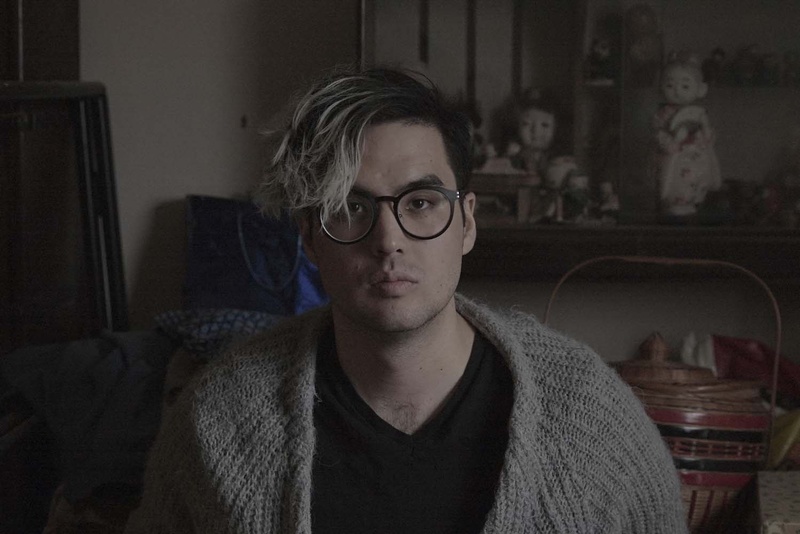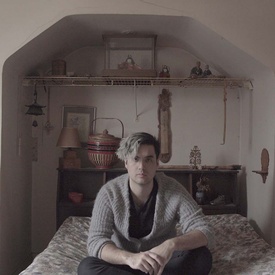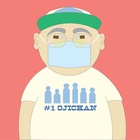Just as it is so sad to hear news of the passing of another Nisei, it is heartening to learn of more and more Japanese Canadian community members in the arts who are coming of age and making their presence known when we need them most.
I got to know Hiroki Tanaka’s father, Yusuke (Toronto), born in Sapporo, when I was at the beginning of my own quest in the early 1990s. Yusuke was the acoustic guitar strumming Japanese editor for the Nikkei Voice newspaper. I remember our first meeting, pulling my Getaway camper van in front of the old NAJC building on Harbord Street in Toronto that housed the NV, hippie-style: too much hair, Birkenstocks and stockings, and meeting him and Nisei Jesse Nishihata, my first real mentor and bonafide Bohemian. Hiroki’s mom was born in Canada and moved to Kyoto at a young age with her Anglican missionary father. She grew up speaking Japanese and was an English/Japanese interpreter for many years.
I smiled when Toronto musician Hiroki Tanaka responded with a decisive “Japanese Canadian” when asked how he self identifies. These intergenerational intersections should be cause for celebration and a hopeful sign for the future to come.
Hiroki lives in Toronto with his wife, Maya, and baby, Jaz.
* * * * *
Hiroki Tanaka, Musician (Toronto)
How is COVID-19 affecting how you do your art?
The release of my 2020 album, 介護記憶曲 or Kaigo Kioku Kyoku, was severely limited by the pandemic. Without live performance many of the significant sources of revenue for today’s indie artist (promotion, merch sales, and venue guarantees, etc) went out the window.
I was privileged to be in a position where I was able to juggle a work-from-home job and navigate the album launch. I also received additional funding from FACTOR and OAC, which I am thankful for. I know of many artists who were much more dependent on their revenue from their music and live shows who are having a lot of difficulty making ends meet.
While I regret not being able to play more live shows for the album and connect with more people, I think my PR team did a great job of getting the album out there, in spite of a number of challenges that Covid brought. The single, “Inori,” from my album actually ended up getting some play on satellite radio, which was a nice surprise and a small source of funds which helped pay for the costs of making the album.
Currently, I’m spending more time learning an audio-visual programming language called Max/MSP, which has been a fun detour and a nice creative outlet. I’m not sure what the future holds for my own music, though I’m finding in spite of the lack of live shows (which admittedly, the “threat” of a looming live show was always a great motivator for me to get my act together and make/practice music), I’m still creating and writing songs for myself. Perhaps I’ll release an album on Bandcamp in the future and keep it a subdued affair.
How is Covid affecting how you think of yourself as an artist?
Covid hasn’t really affected how I think of myself as an artist, so much as it has affected the “how” I make art. I know I’m not the only artist who kind of treats their artistic career as an “expensive hobby,” but that’s kind of how I treat it now. I juggle my family life, my day job, and whatever artistic project I can sink my teeth into and have time for. Makes for a pretty jam-packed schedule but so far I’ve been pulling it off one way or another.
Things were pretty hectic in 2020 when I started my current job with a telemedicine company, and also had to figure out a strategy for releasing Kaigo Kioku Kyoku while in lockdown. I remember a few months where once I finished my shift, I immediately started rehearsing for a live stream or writing emails coordinating the launch. It’s a lot of work getting an album off the ground!
To top that off my child, Jaz, was born in August 2020, starting a whole new journey. I took August off, but kept working through Jaz’s early months, and then I took paternity leave starting in March 2021. I’ve been loving the time I’ve had to spend with my kid and to work on my artistic pursuits in my spare time.
If there’s one thing I’ve come to terms with in the last year, is that thinking about what I’m going to make next artistically is something I need to do to feel fulfilled. Would it be great if my art could also pay my bills? Sure, but that’s not really in the cards now, and frankly the grueling demands of touring make a "successful musicians" lifestyle pretty unappealing as a sole means of income. But creating art gives me something to look forward to, and I love getting into a flow-state when I’m inspired by whatever I am working on at the moment. If I can keep getting that feeling, while also making ends meet through other means, I’m happy.
Are there themes that are preoccupying you at this time?
Covid, for sure. I’m currently collaborating with a professor at York University’s Health and Society department. I’m using Max/MSP to create an algorithmic composition that takes BC and Ontario data from Long Term Care homes during their Covid outbreaks, and interprets that data into visuals and musical notes.
It’s been a sobering art project, but feels like an important conversation to have and present to the public.
In more abstract terms, the consequences of humanity’s shortsighted goals at the expense of our earth and our lives, are enduring themes that I ruminate about (though I can’t say it’s great for my mental health).
What is one societal change you would like to see when we emerge from the Covid pandemic?
Within the context of art and music performance, I really think we need to rethink how musicians are able to make a living wage off our art. Streaming platforms are incapable of distributing their revenue fairly to the artists who are, in fact, creating the resources from which Spotify profits. I encourage anyone who is reading this interview to check out Justice At Spotify and to reflect on how you and those you know consume music.
During the first half of 2020 when live shows completely shut down, my hope was that more pressure would be exerted on the major labels and streaming platforms to provide equitable pay, but at this time of writing (October 2021), I am fairly cynical that any real change will happen without a committed movement by the public at large.
*Artist’s Facebook | Instagram | Twitter | Bandcamp | YouTube
© 2021 Norm Ibuki








